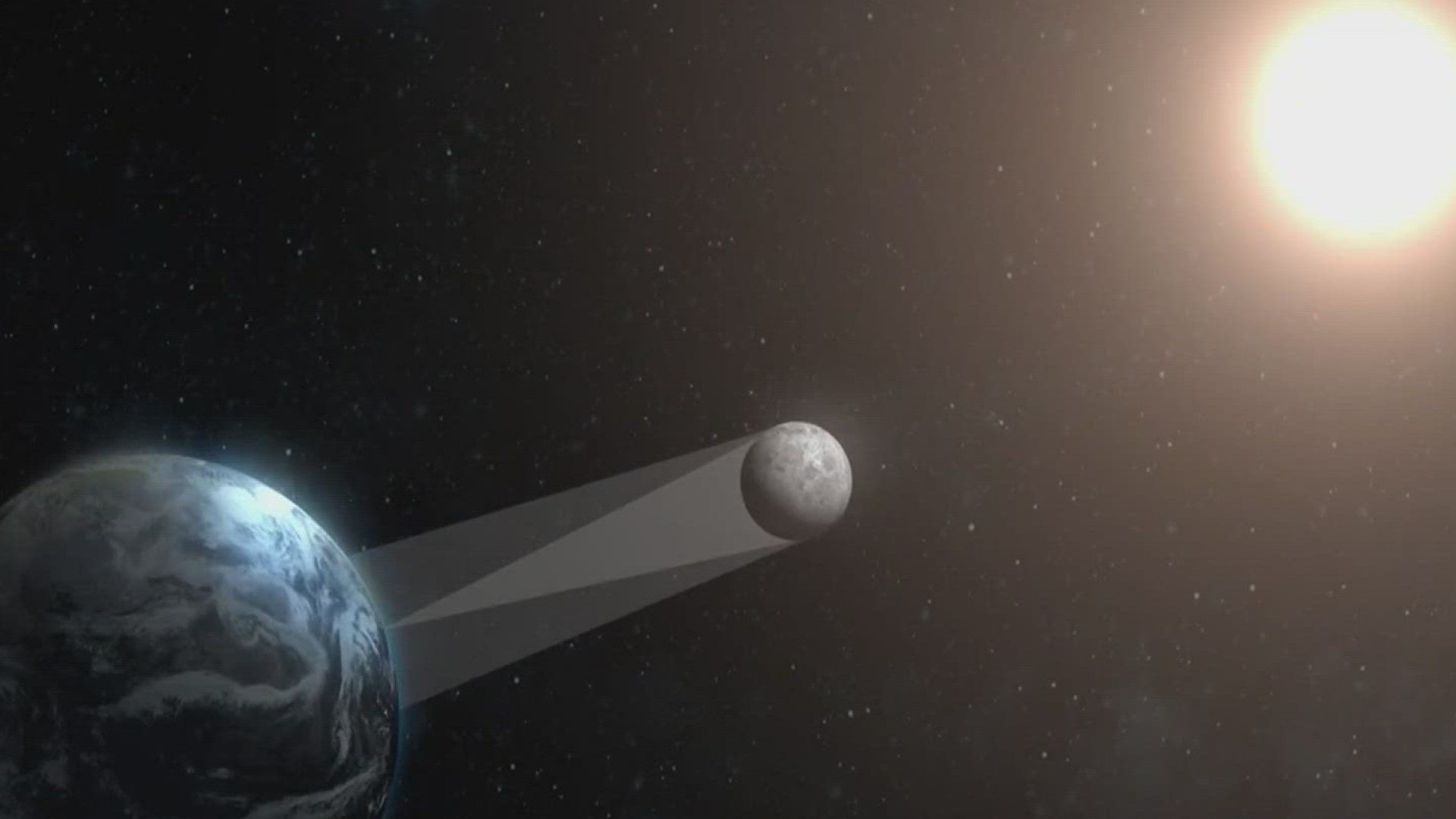CORPUS CHRISTI, Texas — The biggest event of the year for stargazers is now only two weeks away! While we are not in the direct path of totality, there will still be something to see here in Corpus Christi, so eye safety needs to be kept in mind.
3NEWS met with optometrist Dr. Heriberto D. Ramos to stress the importance of eye safety during the solar eclipse.
"It seems innocent enough just to take a glimpse of the eclipse, but I would caution you not to do that," Ramos said
The eye doctor said recognizing the consequences from viewing any eclipse does not happen immediately, but when those effects do start to kick in, you will surely know.
"And it actually can burn the back of the eye, the macula, which is responsible for your straight-ahead vision," he said.
Throughout Dr. Ramos' years of practice, a majority of patients that come in with injury to the eye after eclipses, are under 30 years old.
"I had probably like a dozen patients come in last year and tell me that they accidentally looked at it; their eyes kind of felt like maybe they got damaged," he said.
The brief damages that occur can linger around for a lifetime.
"Unfortunately when the eyes get damaged from the solar eclipse, it's permanent damage and it's not reversible," Ramos said.
According to TAMU-CC physics professor Galina Reid the annular solar eclipse from 2023 and the total eclipse in April will be quite similar as far as location is concerned.
"April 8th we will have total [eclipse]," Reid said. "The funny thing is that both happen to the Northern Hemisphere."
The last time Texas was even included in a total solar eclipse was July 29, 1878! So as you can expect, many eyes are anticipating this sight.
"You will see completely blockage, of the solar disk by the lunar disk," Reid said.
While this is literally an event of a lifetime, don't risk your eyesight.
"I wouldn't recommend looking at it unless you have the protective glasses that can kind of filter out those rays," Ramos said.
To find a list of American Astronomical Society approved glasses click here.
More from 3News on KIIITV.com:
- WATCH: 3NEWS Women's History Month Panel 2024
- Ramón Ayala farewell tour will stop in Corpus Christi in September
- Doorbell surveillance video shows Caleb Harris hours before disappearance
- RECAP: 'Be a Hero' Blood Drive at KIII-TV3 Studios
- Concerns mount over safety after hit-and-run on SPID frontage road
- Free meditation ceremony for veterans, active-duty military
- Corpus Christi mother makes emotional plea following son's death caused by wrong way intoxicated driver
- An update on the Tesla lithium plant in Robstown
Subscribe to our YouTube channel for your daily news and exclusive extended interviews.
Do you have a news tip? Tell 3!
Email tell3@kiiitv.com so we can get in touch with you about your story should we have questions or need more information. We realize some stories are sensitive in nature. Let us know if you'd like to remain anonymous.

